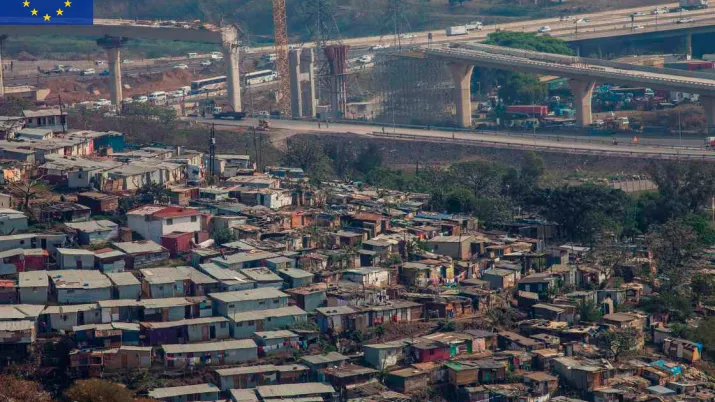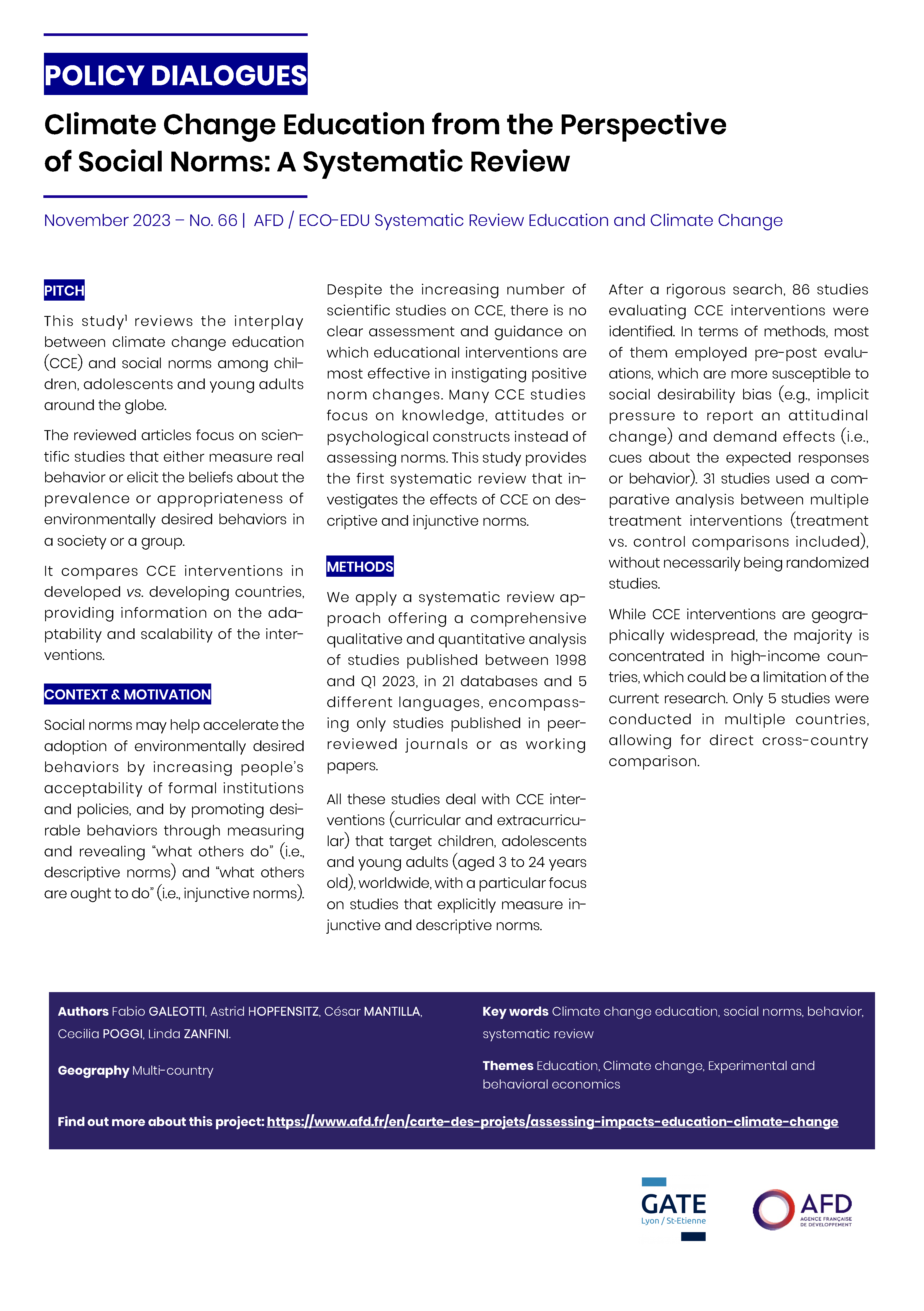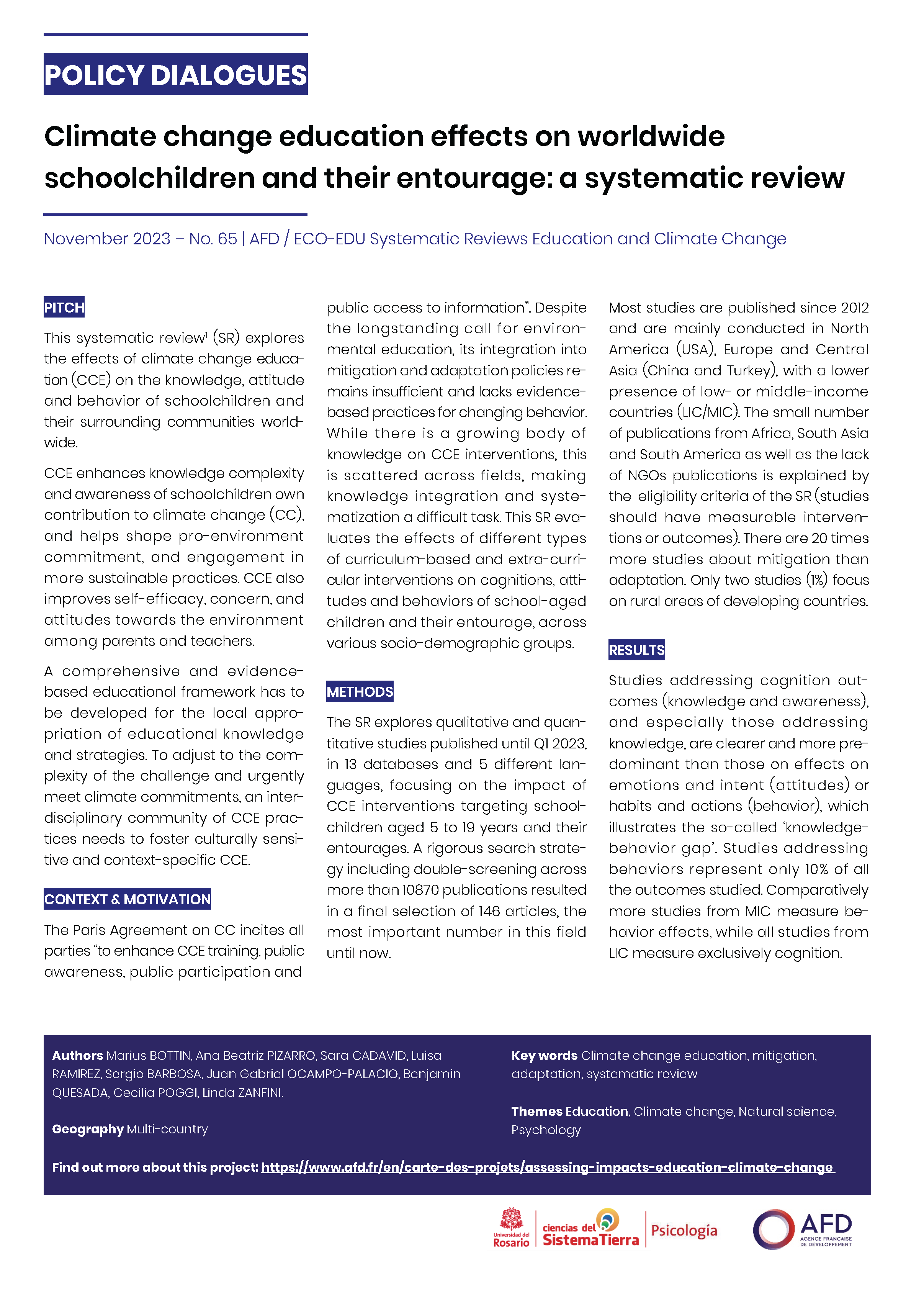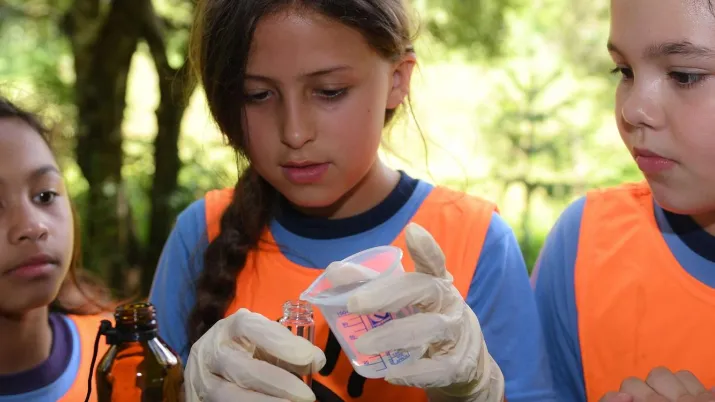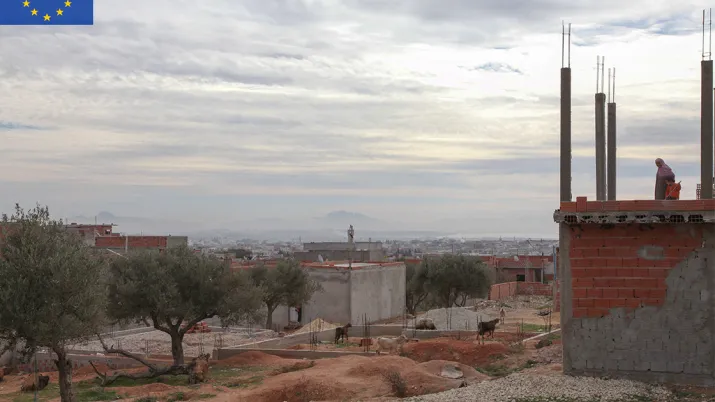 To what extent do carbon credits and voluntary carbon markets really contribute to the achievement of the objectives of the Paris Climate Agreement? By opening the "black box" of these instruments, this study proposes a critical analysis of the economic paradigm in which they fit and identifies ways to reconceptualize them through an environmental accounting framework.
To what extent do carbon credits and voluntary carbon markets really contribute to the achievement of the objectives of the Paris Climate Agreement? By opening the "black box" of these instruments, this study proposes a critical analysis of the economic paradigm in which they fit and identifies ways to reconceptualize them through an environmental accounting framework.
Context
Voluntary carbon markets (VCMs), created in 2000, are carbon credit trading mechanisms that allow companies, in particular, to voluntarily offset their carbon footprint. They can be traced back to the Kyoto Protocol, which introduced the principle of trading greenhouse gas emission reduction credits (or ‘CO2 equivalents’) in 1997. However, they are distinct from ‘carbon allowances’, which are part of a compliance scheme rather than a voluntary one.
These voluntary markets have grown significantly in recent years. One of the driving forces behind this development has been the implementation of initiatives to achieve ‘Net-Zero’ targets – the vast majority of which are voluntary, although some compliance mechanisms allow the use of carbon credits (e.g. the Corsia mechanism in the aviation sector). All this should contribute to the development of an ecosystem for trading the regulatory environmental service of carbon capture, in support of the objective of reducing consumption of the ‘global carbon budget’, itself set by the IPCC.
However, voluntary carbon markets have been the subject of criticism and controversy since their inception, and questions remain as to whether they will actually help to achieve the objectives of the Paris Agreements.
Goal
Based on an analysis of the existing situation and the conceptual framework that currently structures the voluntary carbon markets and carbon credits, the study identifies the pitfalls not only of these markets and their organisation, but also of the instruments traded and the underlying paradigms that validate the current structuring of these markets.
The aim is to put forward proposals to ensure that the realities of the climate and the available carbon budget are better integrated into the operation of voluntary carbon markets, so that they become genuine tools for helping companies to make the climate transition. For example, it answers fundamental questions such as: should I offset, what part and what volume of my emissions are legitimate for offsetting, should I contribute to maintaining climate regulation services without offsetting?
Method
Using an accounting and management approach, the study questions current approaches to voluntary carbon markets, centred on the neoclassical economic paradigm. It promotes a ‘climate debt’ approach, as well as the management of this ‘climate debt’ through carbon budgets to be managed by means of preservation activities whose primary function must be to reduce greenhouse gas (GHG) emissions.
Using an ecological accounting method, the study describes how companies should contribute to global climate debt reduction beyond the voluntary carbon markets, and, through their organisational processes, addresses the levels of accountability for the various emission sources (scopes 1, 2, 3).
Lessons learned
The study shows that carbon credits and voluntary carbon markets are disconnected from climate and organisational realities. Opening the ‘black box’ of VCMs shows that behind this name lie several conceptions of these instruments, and therefore several ways of using and accounting for them within companies. What's more, the tools used by companies are not linked to the objectives of national or international climate policies, so they cannot be used to steer progress towards a global low-carbon trajectory.
To reconnect these instruments with climate policies, these markets need to be thought outside the neoclassical conceptual framework that gave rise to the other carbon management tools. The study proposes principles for reorganising these markets around a ‘managerial’ approach (using in particular the C.A.R.E. ecological accounting and management framework). It makes it possible to design VCMs to ensure compliance with carbon budgets allocated between companies, based on the global carbon budget defined by the IPCC. It thus gives theoretical and operational meaning to the ‘avoid/reduce/compensate’ sequence and to the use of compensation for ‘residual emissions’.
In other words, in order to collectively stay below 1.5°C of global warming, companies would each have to respect a given carbon budget each year (the carbon credit not being a licence to pollute or an emission right, but rather an instrument to be included in a strategy to limit greenhouse gas emissions). This would make it possible to support businesses while reconnecting the tool (VCMs), businesses and climate policies, from the perspective of global governance of the climate system.
Find out more:
- Download the research paper (in French): Crédits carbone et marché carbone volontaire : analyse critique au regard des politiques climatiques et des sciences de gestion, et proposition d'un cadrage comptable écologique des crédits carbone
- Watch the research webinar (in French): Pertinence des marchés volontaires de carbone : aujourd'hui et dans un futur neutre en carbone
Discover other research projects
- Read more about Assessing the concrete effects of climate change education on ecological transitions
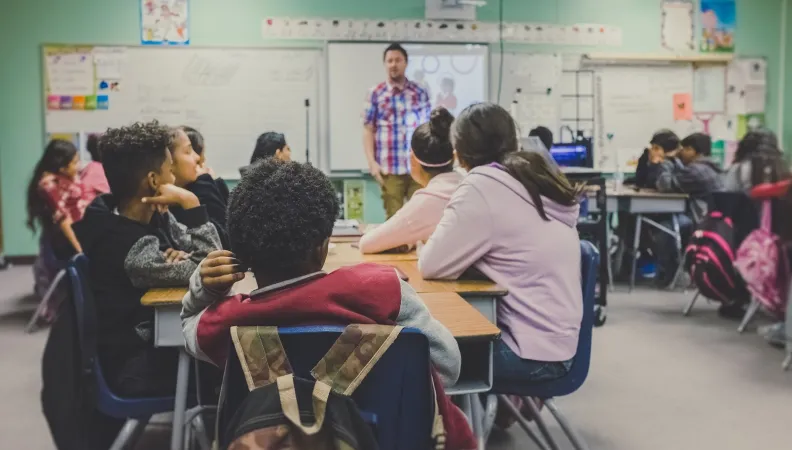 Schoolchildren in a classroom. AFD funded two systematic literature reviews to assess the concrete effects of climate change education (CCE) on ecological transitions. By examining their impact on the knowledge, attitudes and behaviours of schoolchildren, young adults and their entourage, these studies led to recommendations for researchers and decision-makers in the field of education.
Schoolchildren in a classroom. AFD funded two systematic literature reviews to assess the concrete effects of climate change education (CCE) on ecological transitions. By examining their impact on the knowledge, attitudes and behaviours of schoolchildren, young adults and their entourage, these studies led to recommendations for researchers and decision-makers in the field of education.
Context
Climate change education (CCE) encompasses school and out-of-school activities that: teach skills and knowledge about climate change mitigation (such as sustainable lifestyles) and adaptation (such as disaster risk reduction); promote safe and sustainable learning spaces; actively engage communities as agents of change; and strengthen collaboration between policy makers and researchers in education and climate. It can take different forms (laboratory activities, school projects, etc.).
Despite the growing number of scientific studies on CCE, the concrete effects of these educational interventions remain uncertain. This is why, following a call for research proposals, AFD has selected two projects for systematic reviews of the existing literature and its main gaps:
- The first project focuses on the effects of climate change education on the knowledge, attitudes and behaviours of schoolchildren and their entourage; it is carried out by a team of researchers from the departments of psychology and natural sciences of the University of Rosario in Colombia.
- The second focuses on the effects of climate change education on behaviour and norms; it is led by a team of researchers from the Groupe d’Analyse et de Théorie Economique (GATE-CNRS) and the Department of Experimental Economics at the University of Rosario in Colombia.
Objectives
The study conducted by the University of Rosario analyses the impacts of climate change education according to the type of intervention (“traditional”, immersive, innovative teaching activities, etc.) and the strategies mobilized (based on knowledge, habits, emotions…). It aims to assess the effects of these different interventions on the knowledge, attitudes and behaviours of preschool and school-age children and their entourage, with a focus on their sociodemographic characteristics.
The study led by GATE-CNRS examines the impact of climate change education on the behaviours and the social norms that shape behaviors and expectations of children and young adults within society, through the prism of behavioral sciences. It aims to identify educational activities and content that promote changes in social norms, as well as possible cognitive biases and cultural and normative barriers. This systematic review will be supplemented by a research experiment conducted by GATE-CNRS.
Method
Both research projects are based on systematic reviews, namely rigorous and reproducible syntheses of the results of all existing original studies answering the same research question, which makes it possible to identify, select, evaluate and summarize primary studies, data and research findings on this issue.
The study led by the University of Rosario adopts the PIO (Population, Intervention, Results) methodology, which helps in the formulation of the research question and the realization of bibliographic research. A comparative analysis is then conducted to assess the effects of education on different populations (for example, younger students versus older students, etc.).
The study conducted by GATE-CNRS uses the PICO (Population, Intervention, Comparison, Result) approach, in which a comparative analysis allows to evaluate the most popular, effective or reliable types of interventions from a methodological point of view, behaviours and social norms, with a focus on intervention contexts. An experimental study conducted in France and Colombia will then aim to fill some gaps observed in the literature by testing two hypotheses:
- immersive educational activities are more effective than traditional activities in inducing pro-environmental behaviours and normative changes;
- the level of adherence to norms and civic engagement in both countries result in a different propensity to engage.
Research findings
Each of the two research projects resulted in a “Policy Dialogue” publication, presented at COP28, as well as a research paper published in the collections of Editions Agence française de développement. The project of the GATE-CNRS team will also give rise to a second research paper presenting the results of the field experiment.
Download the publications:
- Climate change education from the perspective of social norms: A systematic review (AFD Research Papers, November 2023) and the associated "Policy Dialogue" publication
- Worldwide effects of climate change education on the cognition, attitudes, and behaviors of schoolchildren and their entourage (AFD Research Papers, November 2023) and the associated "Policy Dialogue" publication
A webinar from the “Research Conversations” series, held in April 2025 to present the latest findings, is available for replay (in French with English subtitles):
Lessons learned
The two systematic literature reviews highlight gaps in research on climate change education, but also some promising results for this area of intervention.
The study conducted by the University of Rosario highlights, among other things, the omission of the gender equality lens, the difficulties in analyzing the effectiveness of long-term interventions, and the fact that research focuses more on the effects on knowledge than on behaviour. The study also highlights that the most relevant interventions are those that mobilize innovative pedagogies, that are based on information drawing on personal experiences, and that generate positive emotions, while those based on negative emotions can have counterproductive effects.
The study led by the GATE-CNRS finds that the types of intervention are very diverse. Projects based on concrete activities, those that combine several types of interventions and those that involve several stakeholders (teachers, students, etc.) lead to more convincing results. The study also highlights the very small amount of work that focuses on social norms; the fact that this research is conducted mainly in high-income countries and in urban areas; and that it focuses on recycling and waste behaviours, easily observable, neglecting behaviours with a greater impact on climate (transport, etc.).
The results of the experimental study are expected by the end of 2025.
Contacts
- Dr. Cecilia Poggi, Research Officer, AFD
- Dr. Linda Zanfini, Research Officer, AFD
- Dr. Benjamin Quesada, Associate Professor, Earth System Science Director, Research Group Leader "Interactions Climate-Ecosystems" (ICE), University of Rosario (Colombia)
- Dr. Fabio Galeotti, CNRS researcher at the Groupe d’Analyse et de Théorie Economique Lyon St-Etienne (GATE), Head of the 'Experimental economics' research group at GATE (France)
Find out more
Climate Change Education from the Perspective of Social Norms
Published on November 22, 2023
Climate change education effects on worldwide schoolchildren and their entourage
Published on November 22, 2023
Is climate change education effective? Two AFD-supported studies provide answers
Published on May 5, 2025


